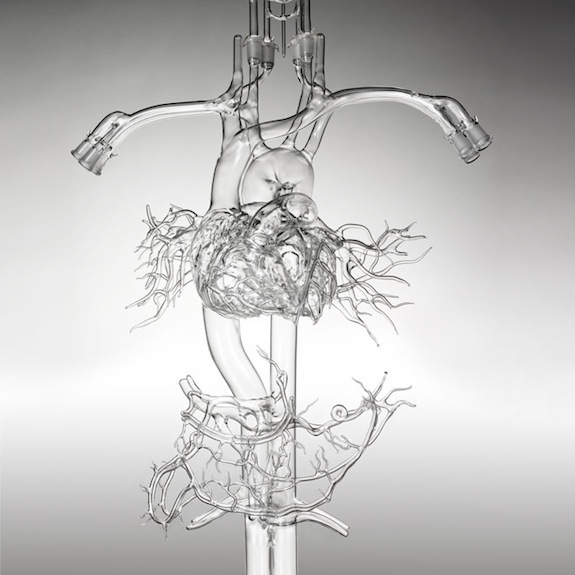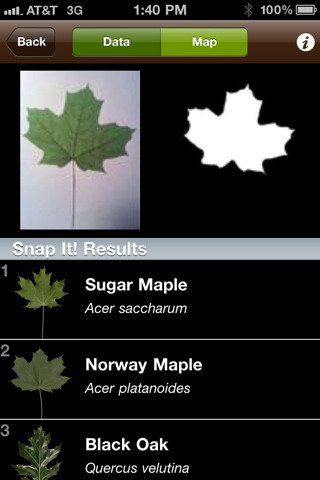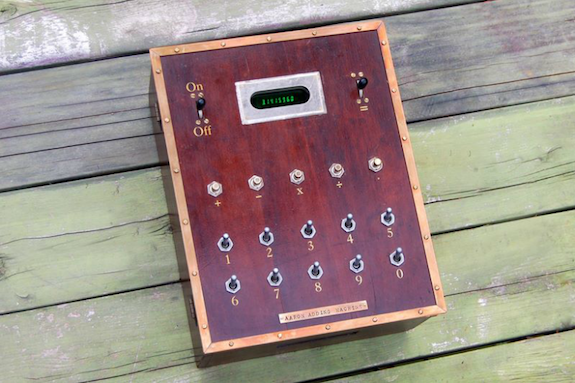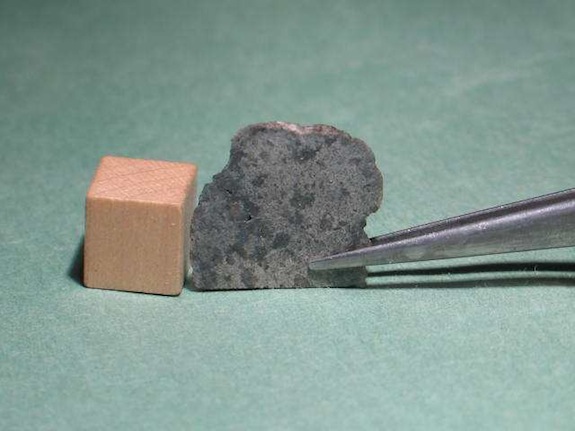Quirky Holiday Gift Ideas for Science Nerds
A roundup of unique (if impractical) science gifts, from glass anatomical models to retro adding machines
![]()

A detailed glass anatomical model could be the perfect gift for the science nerd on your list, if you can stomach the $25,000 price tag. Photo by Garry McLeod via Wired
We all have science nerds in our lives (if you’re reading this blog, in fact, you probably are one yourself). But when the wintertime gift-giving holidays roll around, picking out gifts for this crowd can be more difficult than for others. A sweater just won’t cut it. With this in mind, here some fascinating (if sometimes impractical) gift ideas for science nerds:
Glass anatomical models: as detailed by Wired, master glassblower Gary Farlow and his team of artists make exquisitely detailed full-scale anatomical models of the human body’s vascular systems (above), from the arteries of the brain to the vessels that feed our internal organs. These stunning creations aren’t just for show—designed with the help of cardiologists, the see-through systems are used for training medical students. You might want to reserve them as gifts for the extra-special bio-nerds on your list, though, as a full-body model costs up to $25,000.
3-D Printers: Once restricted to professionals, 3-D printers are rapidly coming down enough in price to enter the consumer market in earnest. Much like a normal printer takes digital images and puts them on a piece of paper, a 3-D printer can convert plans for 3-D objects and carve them into plastic or other materials. They are beloved by engineers, inventors and tinkerers of all types. At the low end of the market is the Printbot jr., a $399 machine that requires some self-assembly, and the $480 Portabee 3D Printer, billed as the world’s first portable 3-D printing device.
Retro Adding Machines: The age of the artisan calculator is upon us. As he desribes on his website, Andy Aaron makes fully functional Victorian-inspired adding machines, using old-fashioned tools like switches, cranks and levers, all mounted in a handsome wood casing. The handcrafted devices each take roughly a year to produce—and all the ones posted on Aaron’s website are already marked “SOLD”—so you might went to get in touch with him pronto if you want to buy one this holiday season.

Leafsnap, an iPhone app, can identify a tree species simply based on the shape of its leaves. Image via Leafsnap
Electronic Field Guides: In the past, nature lovers roamed forests and countrysides with a trusty field guide at hand to help identify plant and wildlife species. Now all you need is your smart phone. Leafsnap is one of the first in a series of field guide apps being developed by researchers from a group of institutions (including the Smithsonian) that automatically identify a plant species based on a picture you take of a leaf. Even better, it’s entirely free.
Martian Meteorites: As Curisoity explores Mars, you can buy yourself a small piece of it. MeteoriteMarket.com sells a variety of meteorites, including pieces of Martian Shergottite rock that crashed into the Oman desert and were discovered in 1999. While the many of the smallest pieces are already long gone, a handful remain, ranging from $1067 to $14,500 in price.
/https://tf-cmsv2-smithsonianmag-media.s3.amazonaws.com/accounts/headshot/joseph-stromberg-240.jpg)



/https://tf-cmsv2-smithsonianmag-media.s3.amazonaws.com/accounts/headshot/joseph-stromberg-240.jpg)